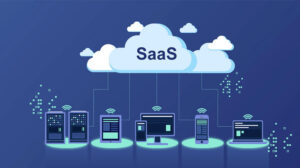There are few technologies that have the kind of relationship with business that email does. Email is used in countless offices every day and is considered an effective means of communication. The unfortunate reality is that this is not the truth. Not only is email ineffective and poorly constructed as a channel, but it is rife with incomplete security strategies that leave it incredibly vulnerable.
Yet there is still one IT component that seems to come under fire with a greater frequency – the cloud. While the news is full of headlines about email breaches, a cloud security story will tend to overshadow it. But what the sources of these stories often fail to point out is that the cloud – much like any other technology – is only as secure as you make it. With the right investments, the cloud can be a safe and valuable means of enterprise success.
With this in mind, the cloud environment should be looked at to facilitate a proper substitute for email because it is more secure. But the other consideration to make is that email's poor organization is a detriment to productivity. A more direct and effective technology is faxing, but the machines traditionally used with this kind of connection have not stood the test of time. Mobility is key these days, and a stationary endpoint can be a deal breaker for an enterprise channel. But by reconfiguring fax solutions as software-based assets, it is possible to have fax capabilities from anywhere with an Internet connection.
Fax is not dead, but it does have to be updated in order to replace email. This is something that all businesses should consider pursuing, as it can unlock operational advantages and provide greater security.
Cloud and mobility go hand in hand
Smartphones have enjoyed an incredible level of success within the last decade. But by many accounts, it could not have been made possible without the cloud. Cloud technology is seemingly tailor-made for a mobile world and is being increasingly sought out as a result.
"The cloud, with its distributed and scalable computing model is the brains and brawn behind the mobile mod," wrote The Guardian contributor Benjamin Robbins. "The cloud is a critical component for exciting mobile experiences. It is the cloud in conjunction with mobile that is able to meet the demand of that ever growing number of mobile devices which now exceeds the population of the planet."
With so many people using smartphones and the cloud in their personal lives, it only makes sense that they will want to leverage them in the workplace, as well. This is something that companies need to embrace, and an innovative way to do so is to curb email use with cloud-based faxing applications. It's not enough just to forbid email – the downside to the consumerization of IT is that is has equipped employees with the ability to bypass regulations and restrictions. Workers have to be supplied with a reason to change their habits, and often that comes from supplying new tools.
Email's structure is ineffective
A lot of the criticism surrounding email is that it is inherently insecure. But even if protective measures were somehow perfected on this platform, the concept of the inbox would still be holding companies back.
One of the biggest problems with email is that anyone can send anything to whomever they want to. While this sounds like a great equalizer in an enterprise environment, it also opens up corporate email accounts to spam of all kinds. Many messages, even ones sent from within the company, are not essential to the daily activities of any given staff member.
In spite of this, they all often end up in one communal pile with everything else. When added to the amount of junk mail and potential phishing scams that make their way past the filters, the missives of actual importance can get lost in the shuffle. Yet email remains one of the most widely-used channels today.
The thing is that email was eventually considered a replacement not only for "snail mail," but also the fax in many cases. Attachments have facilitated a lot of convenience, but they have also put a great deal of sensitive documents at risk. Faxing is much more direct, but it has long been tied to legacy equipment. That's all changed now that the cloud is more easily obtained for enterprise use.
Cloud fears are mostly hype
Cloud-based fax is clearly becoming an essential to enterprise. While some people believe otherwise, the cloud is a secure, practical means to facilitate effective communications in the business world. According to Forbes contributor Tim Minahan, organizations like T-Mobile, Marriott and American Electric have all found ways to embrace the cloud – and they're not alone.
"There are plenty more examples of savvy companies like this who are investing in the cloud to enable new processes and achieve new insights that allow them to run their business in an entirely new way – not just do the same old things using a different delivery or pricing model," Minahan wrote. "They're creating disruption. Fueling innovation. And driving competitive advantage."
Those that are interested in bolstering their networks while embracing mobility need to take a good look at their email resources and compare them to faxing in the cloud. Chances are that they won't be able to stack up.
Enhance enterprise communication, collaboration and compliance efforts with a proven FoIP solution from FaxCore. Contact FaxCore today to learn more about their 'Partly-Cloudy' fax solutions.




